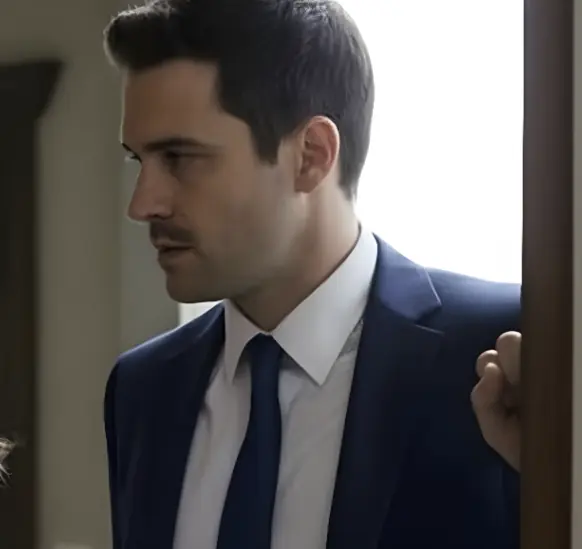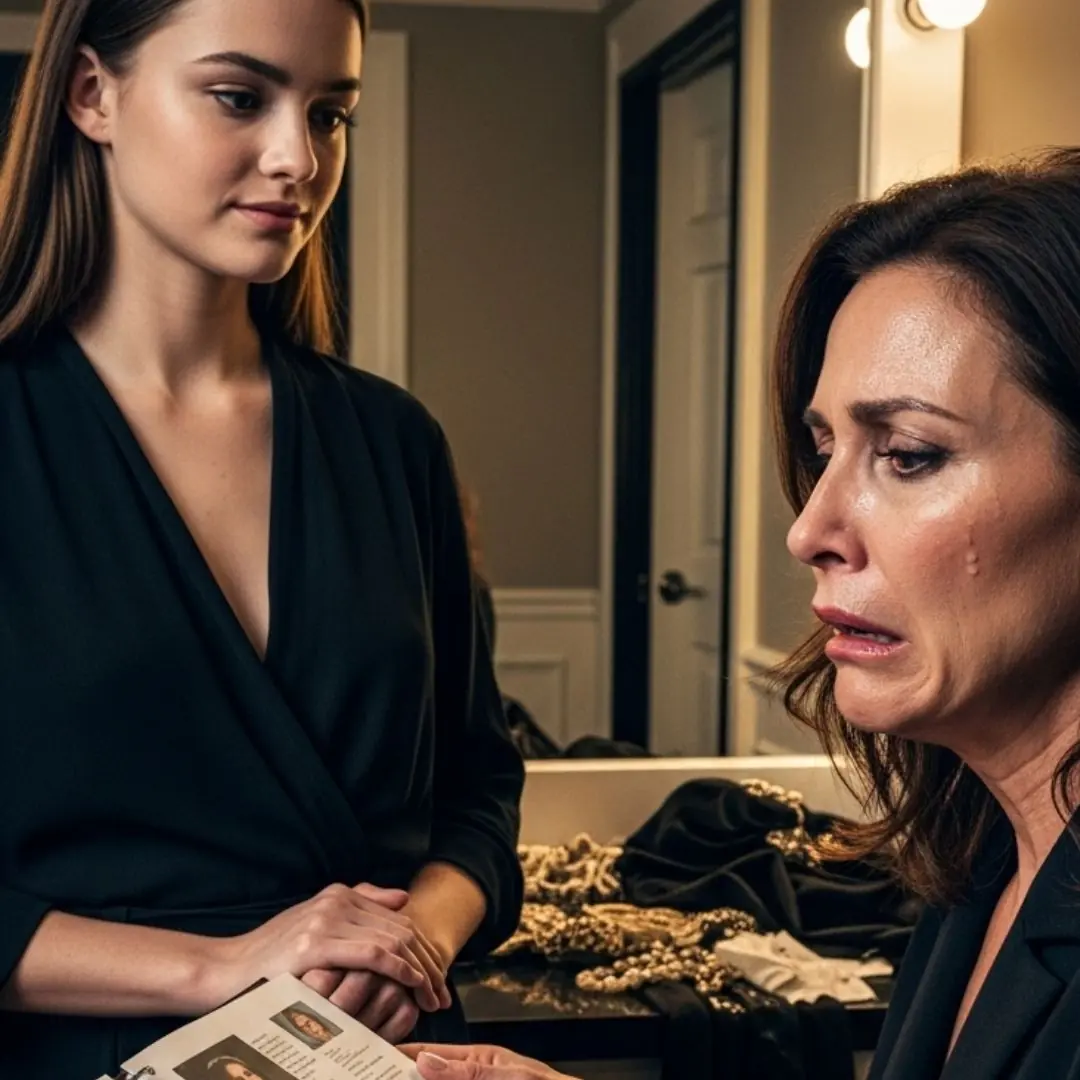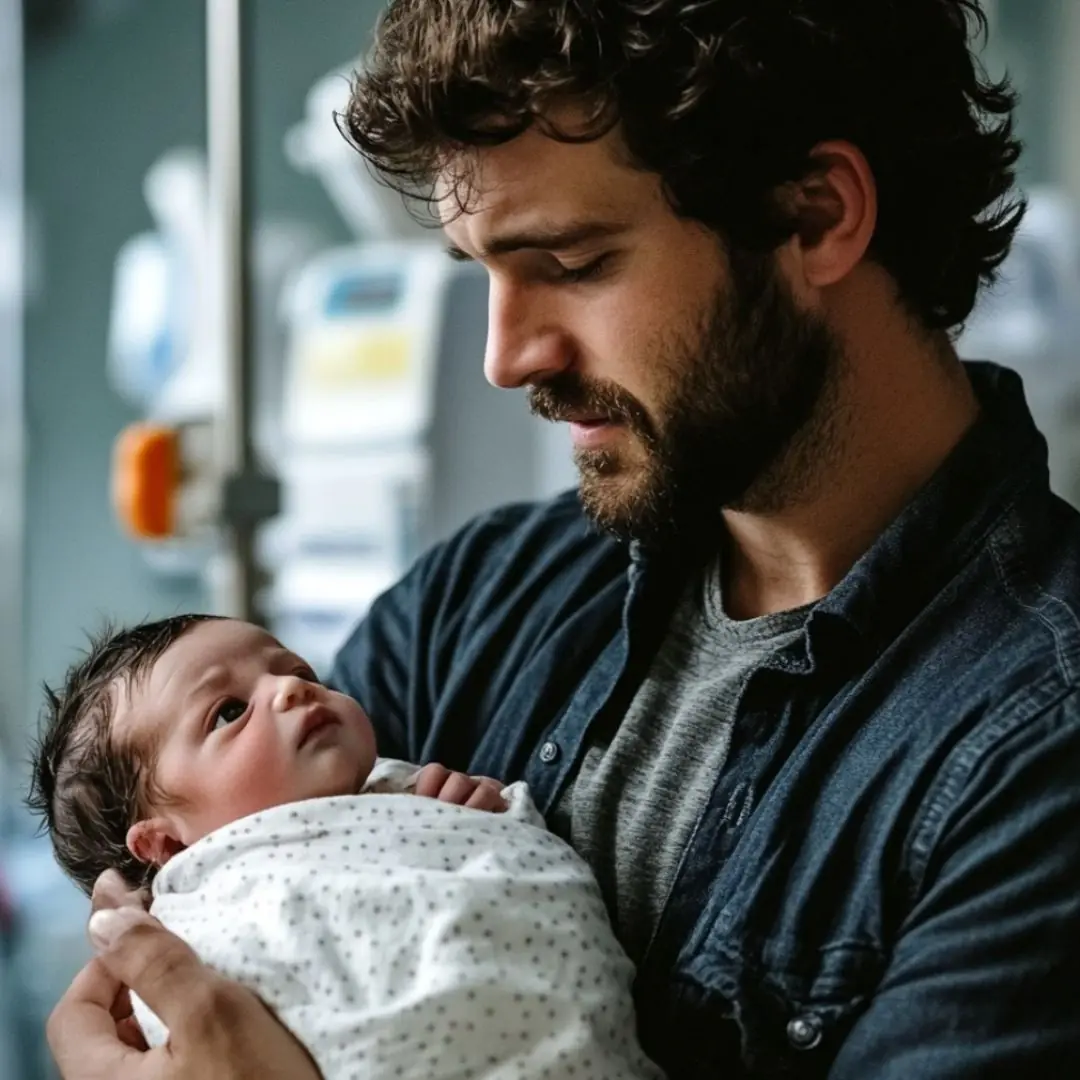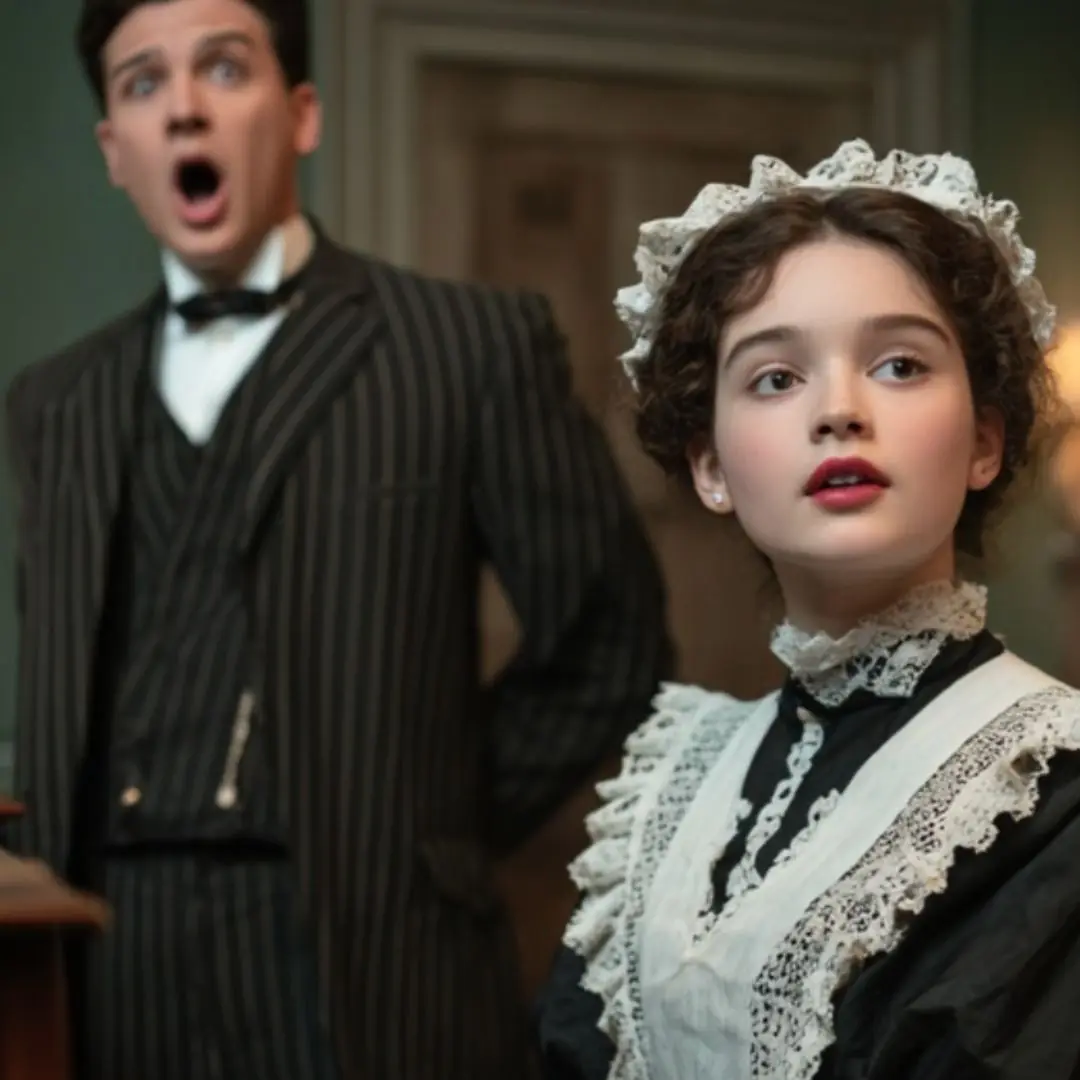
A single mother was not afraid to marry a widower with six children

Elara had built a life on precision, a necessary response to the fragility of her circumstances. As a single mother working three part-time jobs and raising her intensely observant seven-year-old daughter, Lia, chaos was a luxury she simply could not afford. Their two-bedroom apartment was a testament to meticulous organization; every bill paid on time, every sock matched, every hour accounted for. Her courage was not loud or boastful; it was the quiet, grinding persistence of a woman determined to create a life of stability out of scarce resources. Then came Thomas. Thomas didn’t arrive in Elara’s life like a knight or a salvation; he arrived like a minor logistical hurricane. He was a widower, a good man whose heart was currently submerged beneath a tidal wave of unmatched laundry, overdue school forms, and the relentless, exhausting demands of parenting six children alone. Six. The number itself was staggering, a human geometry problem that defied simple algebra. There was quiet, artistic sixteen-year-old Chloe; stoic, resentful fifteen-year-old Ethan; boisterous, perpetually muddy twelve-year-old twins, Noah and Finn; clingy, perpetually hungry eight-year-old Phoebe; and the four-year-old whirlwind, baby Caleb, still navigating the world on unsteady legs and a highly volatile emotional core. Thomas, a high school history teacher by profession, was gentle and kind, but fundamentally overwhelmed, a captain clinging to the wreckage of a massive, beloved ship.
Their first official date, six weeks after meeting at a PTA meeting where they were both equally late, was less a romantic evening and more a coordinated disaster management effort. It involved Elara bringing Lia along, as Thomas had a sudden emergency—Ethan had forgotten his saxophone for the school concert—and the subsequent hour was spent shuttling seven children between the concert hall and the sitter, all while trying to maintain a conversation across the noise and the car seats. What drew Elara wasn’t the romance—there was none, just shared exhaustion—but Thomas’s fundamental decency and his palpable, agonizing love for his sprawling, chaotic brood. He wasn’t looking for a replacement mother or a savior; he was looking for an ally, someone who understood that sometimes, love means correctly assembling a complicated piece of furniture at 1 AM. Elara, with her inherent organizational competence, found herself quietly charmed not by Thomas’s good looks, but by his genuine despair over the state of his grocery bill and his absolute, fierce commitment to his children. He saw her not as a beautiful woman, but as a competent one, and that felt infinitely more valuable.
The courtship continued in this non-traditional vein, characterized by shared spreadsheet management and late-night phone calls about immunization records. Elara’s practical mind began to categorize the chaos. The problem wasn’t the children; it was the systems. She started small, offering advice on meal planning that drastically cut Thomas’s grocery spend, and introducing a color-coded laundry system that miraculously reduced the pile of unmatched socks. She didn't seek to control his life, but rather to infuse it with the structural integrity necessary for survival. Lia, initially wary of the sudden explosion of siblings, clung to Elara’s side, observing the mayhem with wide, silent eyes. The Thomas children, especially the older ones, were openly resistant. Ethan, still mourning the loss of his biological mother, viewed Elara as an intruder, a threat to the sacred, if broken, status quo. Chloe was too quiet, retreating further behind her sketchbook, avoiding any connection that might require emotional investment. The sheer weight of their collective grief and the monumental logistics of their lives was enough to send any sane person running back to the safe predictability of a two-bedroom apartment, yet Elara found herself digging in. She realized that Thomas’s life, despite its disarray, was brimming with a kind of messy, sprawling love she had never allowed herself to experience.
The decision to marry, made eleven months after their non-date, was less a whirlwind of passion and more a quiet, shared resolution over a mountain of tax forms and permission slips. Thomas, his eyes full of unshed exhaustion and gratitude, finally looked at her and said, "Elara, I don't know how I've survived this long without your brain. But my heart knows I can't survive the future without your presence. Will you marry us?" He emphasized the plural, acknowledging the seven small people whose lives were inextricably linked to theirs. Elara didn't hesitate. She knew the magnitude of the commitment; it was marrying not just a man, but a complete, complex, fully formed family history, replete with trauma, grief, and six demanding, beautiful futures. The courage required wasn’t just romantic; it was a radical act of faith in her own capacity to love and manage. The wedding was small, held in Thomas’s sprawling, structurally sound but cosmetically defeated house, with all seven children, including a tearful Lia, serving as the entire bridal party. The vows were simple, but Thomas added a promise specifically to the children, pledging to honor their mother’s memory while building a new future defined by patience and unity.
The months following the marriage were the Test of Fire. The combined family of eight was less a seamless blend and more a volatile chemical reaction. Thomas’s house, which Elara now shared, was chaotic; it was enormous but constantly bursting at the seams with the sound of six different music preferences, seven simultaneous demands for attention, and the perpetual odor of microwaved popcorn and perpetually wet shoes. Elara focused on structure, not personality. She instituted mandatory "Quiet Time" and "One-on-One" sessions, understanding that she couldn't rush affection, but she could enforce respect and order. The breakthrough, the moment Elara truly earned her place, came during the inevitable teenage rebellion. Ethan, the quietest resistor, broke curfew, got drunk, and ended up spending a frightening night at the police station. Thomas, mortified and heartbroken, was ready to deliver a punishment steeped in anger and fear. Elara intervened, her voice calm and level. She didn't lecture Ethan about rules; she sat him down and spoke to him about the cost of chaos, the importance of structural integrity in a family, and the fear his actions had caused Thomas, whom she described not as a father to be feared, but as a man who was desperately trying to keep eight lives afloat. She didn't try to replace his mother; she spoke to him as a seasoned, pragmatic adult who understood the weight of responsibility.
It was this quiet, non-judgmental competence that finally reached Ethan. He didn't offer a dramatic apology, but the next morning, he left Elara a carefully typed list of the household's weekly needs, a silent offering of alliance and respect. The acceptance trickled down from there. Chloe, the artist, began leaving Elara small, charcoal sketches—not of her, but of Lia and Caleb playing, the drawings a silent acknowledgment of the new, complicated bonds forming. Lia, who initially struggled with the loss of her mother’s singular attention, found her tribe in the middle four, who dragged her out of her shell and into the joyful, muddy mess of childhood. Elara’s strength was not in performing the role of the perfect mother, but in being the necessary foundation—the one who made sure the bills were paid, the dinner was planned, and the emotional systems were in place to handle the inevitable storms. She allowed Thomas to focus on the emotional aspects, the historical memory of their first mother, while she handled the relentless present, bridging the gap between past and future.
Now, two years later, the family is an absolute mess, but a beautiful one. The house is still loud, there are still unmatched socks, and the calendar is a terrifying patchwork of sports, concerts, and appointments. But the eight of them function as a unit. Elara and Thomas share a deep, quiet understanding forged not in romantic dinners, but in the trenches of daily life. Their love is defined by the shared weight of their collective responsibility, by the gratitude in Thomas’s eyes every time Elara manages to locate Caleb’s lost teddy bear or negotiate peace between the twins. Elara often looks at the seven children—each with their own history, their own needs, their own deep, enduring grief—and marvels at the improbable bravery of the single mother she once was, who was not afraid to exchange her life of careful precision for this sprawling, chaotic, absolutely necessary love. The number six had seemed terrifyingly massive, but she realized that six times the challenge also meant six times the opportunity for connection, six times the joy, and a family built not on blood or chance, but on the quiet, radical courage of a woman who chose to manage the impossible.
News in the same category


She left her children in the fir forest for a life of wealth—but the past found her 18 years later

The orphan girl who inherited a modest house deep in the forest went mushroom picking and found an airplane… One look inside the cockpit changed everything…

Then have dinner with your mother, I’m going home, — I snapped at my husband who had brought my mother-in-law to the restaurant

At 61, I reunited with my first love — a remarkable story of love, healing, and a new beginning

A daughter growing up with love: how a devoted dad built a life of strength and family

How an unexpected knock reunited a family and reshaped a father’s heart forever

5 nighttime symptoms while sleeping that could indicate can.cer

I Found My Husband’s Second Wedding Photos—And He’s the Groom and Father of the Bride

A DNA Test Revealed I Have a Son… But I’ve Never Given Birth

Echoes of the Forgotten Meadow

A Revealing Mother’s Day Gift That Changed Everything

My wife refused our deaf newborn: ‘leave him at the hospital—I’m not raising a child like this

The Little Boy And The Injured Sparrow

A young girl married an old man to save her family, but on their wedding night the old man did something terrible

She arrived without a suitcase, with just a paper bag. Her eyes expressed a fatigue that seemed less the result of a restless night than that of a lifetime of hardship

An Extraordinary Couple Welcomes a Healthy Daughter — A Story of Love, Loss, and Redemption

Wife and lover accidentally got into a taxi with the husband. When the husband saw this, his glasses almost slid down his nose
News Post

My Stepmom Took the Christmas Gift My Dad Left Me And Told Me I Didnt Deserve It, Unaware It Was a Test

The Silent Bond: How My Autistic Brother’s First Words Changed Everything

She left her children in the fir forest for a life of wealth—but the past found her 18 years later

The orphan girl who inherited a modest house deep in the forest went mushroom picking and found an airplane… One look inside the cockpit changed everything…

Then have dinner with your mother, I’m going home, — I snapped at my husband who had brought my mother-in-law to the restaurant

At 61, I reunited with my first love — a remarkable story of love, healing, and a new beginning

A daughter growing up with love: how a devoted dad built a life of strength and family

How an unexpected knock reunited a family and reshaped a father’s heart forever

Your Body May Be Telling You Your Arteries Are Clogged — 10 Signs to Know

Grandma’s Kraft Dinner

4 fruits that "feed" can.cer cells avoid them at all costs, no matter how cheap they are

5 nighttime symptoms while sleeping that could indicate can.cer

42-year-old man suffers sudden stro.ke despite not smo.king or drin.king: Doctor says it was caused by “three habits”

I Found My Husband’s Second Wedding Photos—And He’s the Groom and Father of the Bride

A DNA Test Revealed I Have a Son… But I’ve Never Given Birth

Echoes of the Forgotten Meadow

A Revealing Mother’s Day Gift That Changed Everything

A mother and her two sons all develop lu.ng can.cer even though no one in the family smokes — The unexpected cause
